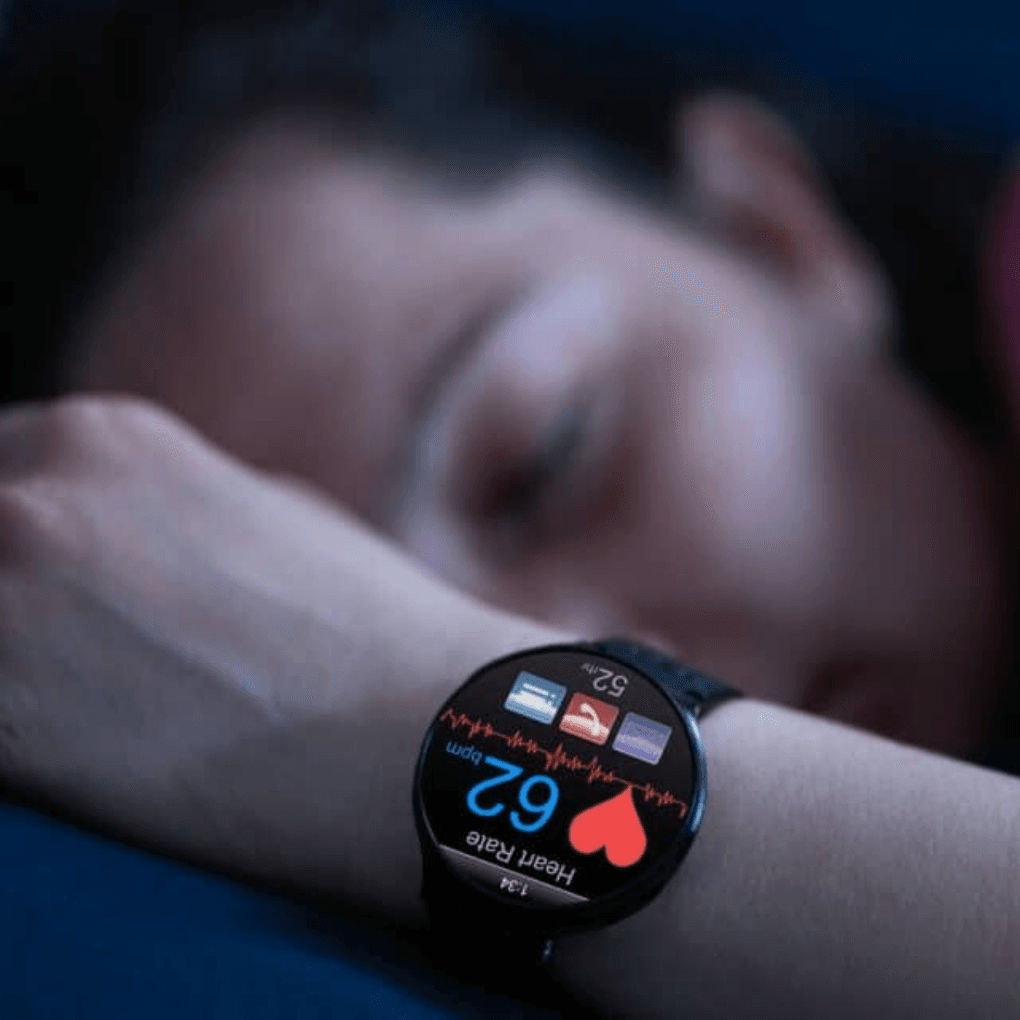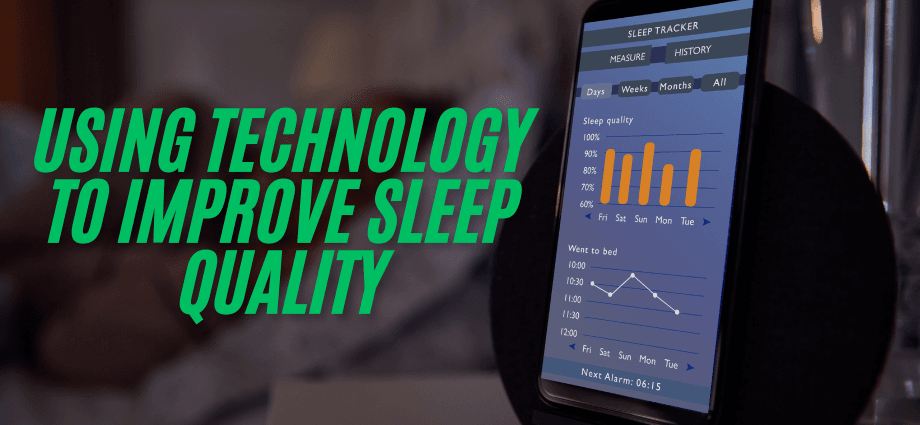In today’s fast-paced world, getting a good night’s sleep is more important than ever. Technology can play a significant role in improving sleep quality, offering tools and solutions to help us sleep better and wake up feeling refreshed. This article explores various tech tools and innovations that can enhance sleep quality.
Sleep Tracking Devices
Sleep tracking devices, such as wearables and smart mattresses, help monitor sleep patterns and provide insights to improve sleep quality.
Definition and Benefits
Sleep tracking devices use sensors to monitor various sleep metrics, such as sleep duration, stages, and interruptions. They provide valuable data to help users understand their sleep habits.
- Monitor sleep patterns
- Provide personalized sleep insights
- Help identify sleep disorders
Popular Sleep Trackers
Some popular sleep tracking devices include Fitbit, Apple Watch, and smart mattresses like Sleep Number. These devices offer detailed sleep reports and personalized recommendations.

Integration with Health Apps
Many sleep tracking devices integrate with health apps, allowing users to combine sleep data with other health metrics for a comprehensive view of their well-being.
Smart Sleep Environments
Creating a smart sleep environment involves using technology to control various factors that affect sleep quality, such as lighting, temperature, and noise.
Smart Lighting
Smart lighting systems can adjust the color and intensity of lights to mimic natural sleep cycles, helping users fall asleep and wake up more naturally.
Climate Control
Smart thermostats and climate control devices can maintain the ideal sleeping temperature, ensuring a comfortable sleep environment.
Sound Machines and White Noise
Smart sound machines and white noise devices can mask disruptive noises and create a calming sleep environment.
Sleep Improvement Apps

Sleep improvement apps offer various tools and features to help users improve their sleep quality. These apps provide guided meditations, sleep sounds, and sleep coaching.
Features of Sleep Improvement Apps
Sleep improvement apps offer features like bedtime reminders, relaxation techniques, and sleep tracking. They help users develop healthy sleep habits.
Popular Sleep Apps
Quality sleep is crucial, and apps like Calm and Headspace help with relaxation through guided meditations and soothing sounds. For sleep tracking, Sleep Cycle monitors patterns and optimizes wake times, while Pillow syncs with wearables for detailed insights. If ambient noise aids your rest, Noisli offers calming soundscapes. These tools make improving sleep simple and effective.
Personalized Sleep Programs
Many sleep apps offer personalized sleep programs based on user data, providing tailored advice and strategies to improve sleep quality.
Wearable Tech for Sleep

Wearable technology, including smartwatches and fitness trackers, has revolutionized sleep health by offering detailed monitoring and actionable insights. These devices empower users to understand and improve their sleep habits.
Benefits of Wearable Sleep Tech
Wearable devices provide continuous and accurate sleep tracking, offering insights into sleep stages, duration, and disruptions. By analyzing this data, users can identify trends, adjust routines, and make informed decisions to enhance their sleep quality. Many devices also provide gentle wake-up alarms and tips for better rest, making them valuable tools for improving overall wellness.
Popular Wearable Devices
Top wearable devices for sleep tracking include the Oura Ring, which specializes in detailed sleep analysis and recovery insights, and Garmin watches, which combine sleep tracking with fitness and stress monitoring. The WHOOP strap stands out for its advanced recovery and strain analysis, offering tailored recommendations for better performance and rest. These devices are designed to integrate seamlessly into daily routines, providing a user-friendly way to prioritize sleep health.
Integration with Other Health Metrics
Wearable sleep tech often connects with other health metrics, such as physical activity, stress levels, and heart rate variability. This integration offers a holistic view of overall health, enabling users to see how sleep interacts with other aspects of their well-being. By providing a comprehensive understanding, wearable devices help users optimize both sleep and daily performance.
Smart Bedding Solutions
Smart bedding solutions combine technology and comfort to enhance sleep quality and promote restful nights. Products like smart pillows and adjustable beds are tailored to address individual sleep needs, ensuring a personalized experience.
Smart Pillows
Smart pillows are designed with advanced features to optimize comfort and support. Many models include cooling technology to maintain a comfortable temperature throughout the night, preventing overheating. Others incorporate built-in speakers, allowing users to play soothing sounds or meditations for relaxation without disturbing a partner. Some smart pillows even track sleep patterns and provide insights to help improve sleep habits.
Adjustable Beds
Adjustable beds offer flexibility in finding the ideal sleeping position. By elevating the head or legs, they can alleviate issues like back pain, snoring, and poor circulation. Many models also feature massage functions to reduce tension and promote relaxation. Zero-gravity settings, which simulate weightlessness, help relieve pressure on joints and improve overall comfort, making it easier to fall and stay asleep.
Benefits for Sleep Quality
Smart bedding solutions enhance sleep quality by delivering personalized comfort tailored to individual preferences. Features like temperature control, massage, and customizable positioning help address common sleep disruptions. By providing better support and creating a relaxing sleep environment, these innovative solutions help users wake up feeling more refreshed and energized.

Benefits of Using Technology for Sleep
Using technology to improve sleep offers several advantages, helping individuals achieve better rest and overall well-being:
- Sleep Tracking: Apps and devices monitor sleep patterns, offering insights into sleep duration, quality, and habits for more informed adjustments.
- Relaxation Support: Guided meditations, soothing sounds, and sleep stories create a calming bedtime routine to reduce stress.
- Comprehensive Health Insights: Wearables track additional factors like heart rate and movement, providing a deeper understanding of sleep health.
- Personalized Schedules: Smart alarms and tailored recommendations promote consistent sleep schedules and easier wake-ups.
- Distraction Reduction: White noise generators or soundscapes drown out disturbances, fostering a peaceful sleep environment.
By combining innovative tools with sleep science, technology makes achieving restful nights more accessible and effective.
Conclusion
In conclusion, technology offers numerous tools and solutions to improve sleep quality. From sleep tracking devices and smart sleep environments to sleep improvement apps and smart bedding solutions, these technologies provide valuable insights and personalized recommendations to help users sleep better. By incorporating these tech tools into your sleep routine, you can enjoy better sleep and improved overall health. As technology continues to advance, we can look forward to even more innovative solutions to help us achieve the restful and restorative sleep we need.
